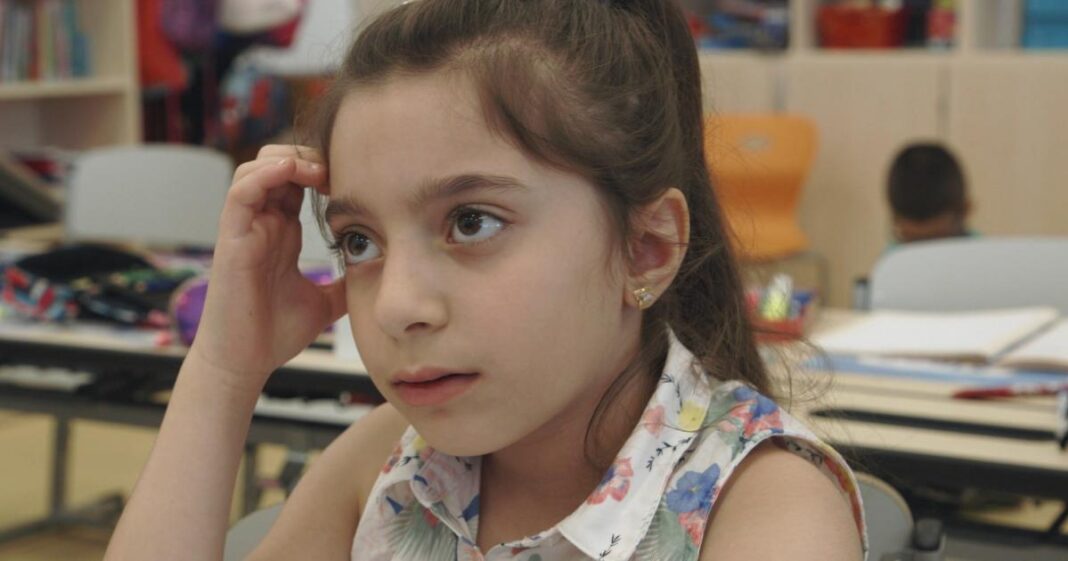Exploring Documentaries: A Look into the Classroom
As chronic underfunding and culture wars leave their mark on already teetering education systems, is it any wonder that documentarians are turning to the classroom as a significant site of interest? Marie Speth’s Mr Bachmann and His Class (2021) films in loving detail a class of 12-year-olds in the diverse German city of Stadtallendorf; and most recently, Claire Simon turned her lens on another Parisian institution with Elementary (2024). Joining the growing curriculum is Austrian film-maker Ruth Beckermann’s compassionate documentary Favoriten.
Favoriten was filmed over three years, and follows a primary-school class from the ages of seven to 10 in the eponymous working-class Viennese neighbourhood. Steered by their kind yet unabashedly ambitious teacher Ilkay Idiskut, the children improve language skills and learn about the world, discussing the war between Russia and Ukraine, exploring Islamic and Christian theology. Taking an unhurried observational approach that lets us see the children develop over the years, the film sees the classroom as a model for society. While never heavy-handed in pushing its perspective, Favoriten is a pointedly vibrant portrait of inner-city multiculturalism. Zoom out and you’ll find a political climate in Austria of increasing hostility towards migrants, signalled in the recent election victory of the ultra-far-right Freedom Party.
In a poignant scene, the children discuss their parents’ blue-collar jobs, a hint at the glass ceiling faced by many immigrant families. Ilkay, on the other hand, believes they can do better. It’s impossible to remain dry-eyed at the tenacity of the teacher and the adoration of her students. Ilkay patiently explains the workings of society and is unafraid to confront toxic, sexist and misogynist behaviour, which emerges in the repeated phrases of the sponge-like children. When the bullying of a small child is uncovered, she quickly shifts from patient to confrontational, offering her students a firm model of responsible adulthood.
In a welcome gesture of inclusivity, Beckermann also gives the children the tools to film themselves and includes some passages in the documentary. This action upends their passive position as documentary subjects, a role that can feel exploitative, even in such a well-meaning documentary. In a world where children are constantly being documented by camera phones and social media, the contemporary classroom doc makes me question the value of filming those so young and perfectly unformed. To paraphrase Pink Floyd, maybe we should leave the kids alone.
Conclusion
Favoriten offers a poignant and insightful look into the challenges and triumphs of a diverse classroom setting, with a focus on the dedicated teacher and her students. It sheds light on societal issues and the resilience of young minds in the face of adversity.
FAQs
1. What is the main focus of the documentary Favoriten?
Favoriten follows a primary-school class from the ages of seven to 10 in a working-class Viennese neighbourhood, exploring their growth and experiences over three years.
2. Who is the teacher featured in the documentary?
The documentary showcases the kind yet ambitious teacher Ilkay Idiskut, who guides the children through learning language skills and understanding societal issues.
3. How does the documentary address issues of multiculturalism?
Favoriten presents a vibrant portrait of inner-city multiculturalism, highlighting the challenges and beauty of diversity within the classroom.
4. What societal themes are discussed in the film?
The documentary touches on topics such as immigration, blue-collar jobs, and societal expectations, offering a nuanced look at the children’s perspectives.
5. How does the teacher handle instances of bullying?
Ilkay Idiskut confronts instances of bullying with firmness and compassion, providing a model of responsible behavior for her students.
6. What unique approach does the filmmaker take in Favoriten?
The filmmaker gives the children the opportunity to film themselves, empowering them and challenging traditional documentary roles.
7. What broader societal issues are reflected in the documentary?
Favoriten sheds light on increasing hostility towards migrants in Austria and the impact of political climates on immigrant families.
8. How does the documentary capture the children’s development over the years?
Through an unhurried observational approach, the film allows viewers to see the growth and maturation of the children as they navigate various challenges.
9. What message does the film convey about the classroom as a microcosm of society?
Favoriten highlights the classroom as a model for society, showcasing the resilience, diversity, and potential for growth within a unique educational setting.
10. Where can viewers watch Favoriten?
Favoriten is screening at the ICA London from 6 December, offering a compelling and thought-provoking viewing experience for audiences.
Tags
Documentary, Education, Classroom, Diversity, Multiculturalism, Immigration, Societal Issues

